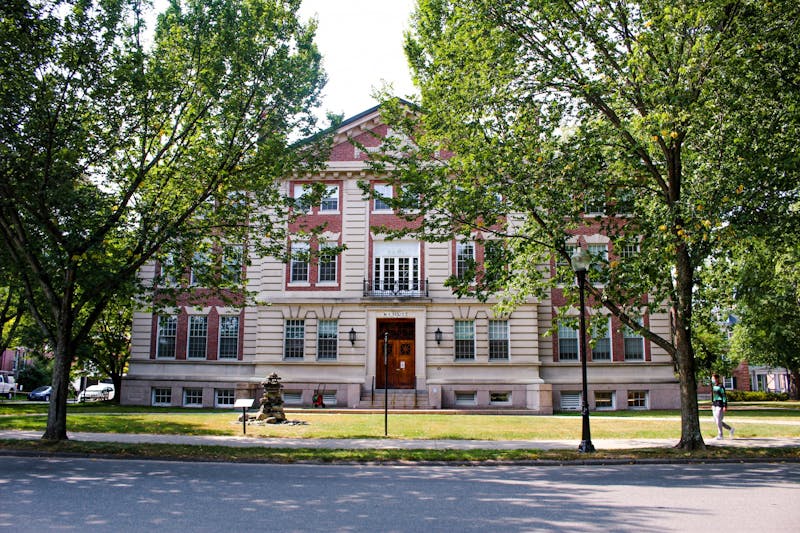On July 4, President Donald Trump signed the “One Big Beautiful Bill Act,” a budget reconciliation bill that includes new guidelines for higher education financing opportunities, among other policies. The bill eliminates several student loan repayment options, restricts Pell grant eligibility and enacts loan caps — all of which may reshape access to higher education.
According to Section 82001 of Title VIII of the bill, current federal student loan borrowers will have to adopt a new repayment plan by July 1, 2028. Borrowers may choose either a standard repayment plan, which will allow them to make fixed payments over the course of 10 to 25 years, or an income-driven repayment plan, which will allow them to pay a fixed percentage of their income on a monthly basis for up to 30 years. Other repayment options will be eliminated.
Economics professor Bruce Sacerdote ’90, who studies the relationship between public policy and students’ decisions to attend college, wrote in a statement to The Dartmouth that these eliminated options were “attractive” because they limited monthly payments to 10 to 15% of the borrower’s discretionary income. The “challenge that many researchers and policymakers have pointed out” was the “complex” bureaucratic knowledge needed for borrowers to qualify for these options.
“Only a modest fraction of people had their loans forgiven under the old plans since the rules were not only complicated, but it was hard to produce the paperwork (proof of 20 to 25 years of consistent payments) to prove eligibility for loan forgiveness,” Sacerdote explained.
The bill also changes eligibility requirements for Pell grants, which are awarded to undergraduates with “exceptional financial need,” according to the Federal Student Aid website. Under section 83004 of the bill, only students who have unmet financial need after grant aid from non-federal sources, such as states and higher education institutions, will be eligible for Pell grant funding. Section 83003 increases Pell funding from $2,170,000,000 to $12,670,000,000 — a $10.5 billion difference for “shortfall,” according to the section title.
Sacerdote wrote that he was “worr[ied]” that the “net effect” of the change in section 83004 will be that aid providers “modestly reduce aid to students.”
“I worry that this change incentivizes states and universities to be less generous since it [is] only by leaving students with unmet need that students have a chance to receive the Pell,” he wrote.
He added that the new standard for Pell grants may result in “greater uncertainty” about students’ financial aid, creating a cascading effect that negatively impacts both the students themselves and the overall American economy.
“Anything that reduces financial aid to students (including an endowment tax or a reduction in Pell aid) is unlikely to help students, their families, graduation rates and U.S. economic productivity,” Sacerdote explained.
In a statement to The Dartmouth, College spokesperson Jana Barnello wrote that Dartmouth “will not reduce anyone’s financial aid in response to this federal legislation.”
“If any federal elements of need-based aid shift, such as Pell grants, Dartmouth scholarships will cover the difference as needed, because we meet the full demonstrated need of each undergraduate,” she continued.
According to section 83002, students enrolled in “eligible workforce program[s]” are now eligible for Pell grants.
“This is potentially a big boost to students investing in non-college high-paying occupations,” Sacerdote wrote.
The bill also introduces new loan caps for Parent PLUS loans, which are borrowed by qualifying parents of dependent undergraduate students enrolled at an eligible school, and Grad PLUS loans, which help borrowers finance higher education degrees, according to the Federal Student Aid website.
Parent PLUS loans will be capped at $20,000 a year, not to exceed $65,000 in total. Grad PLUS loans will stop being available on July 1, 2026. Instead, graduate students seeking professional degrees will have to take out unsubsidized federal loans, which be capped at $50,000 per year, not to exceed a $200,000 lifetime cap; graduate students seeking loans for nonprofessional graduate degrees will be capped at $20,500 per year, not to exceed a $100,000 lifetime cap. Unlike subsidized loans, unsubsidized loans accrue interest during periods of time when borrowers are not required to make payments, such as when they are in school, according to the Federal Student Aid website.
These loan caps are substantially less than the cost of attendance for certain graduate programs, like medical school. According to the Education Data Initiative, the average debt from medical school was $234,597 in 2023.
Pre-medical student Savannah Finnerty ’27 said the new loan cap is “scary.”
“Before, it was very daunting how much the costs for medical school are, but it was okay because you could take out loans to pay for it,” Finnerty explained. “But now we don’t have that.”
According to Sacerdote, students from low and middle-income backgrounds will turn to private lenders to continue to afford their education.
“Reducing credit constraints is a key way in which the U.S. is able to democratize education,” Sacerdote wrote. “The [Grad PLUS] program has been a key way for non-wealthy students to earn these very valuable degrees.”
He emphasized the importance of higher education for “U.S. productivity growth” and “research that improves the human condition.”
“Student debt is not necessarily bad, especially when it allows moderate and low-income students to make productive and income-increasing investments,” Sacerdote wrote. “While this bill represents some erosion in federal subsidies to students and higher education, I am hopeful that the U.S. higher education system can remain an important engine of growth, opportunity and upward mobility.”
Jeremiah Rayban ’27 contributed to reporting.







